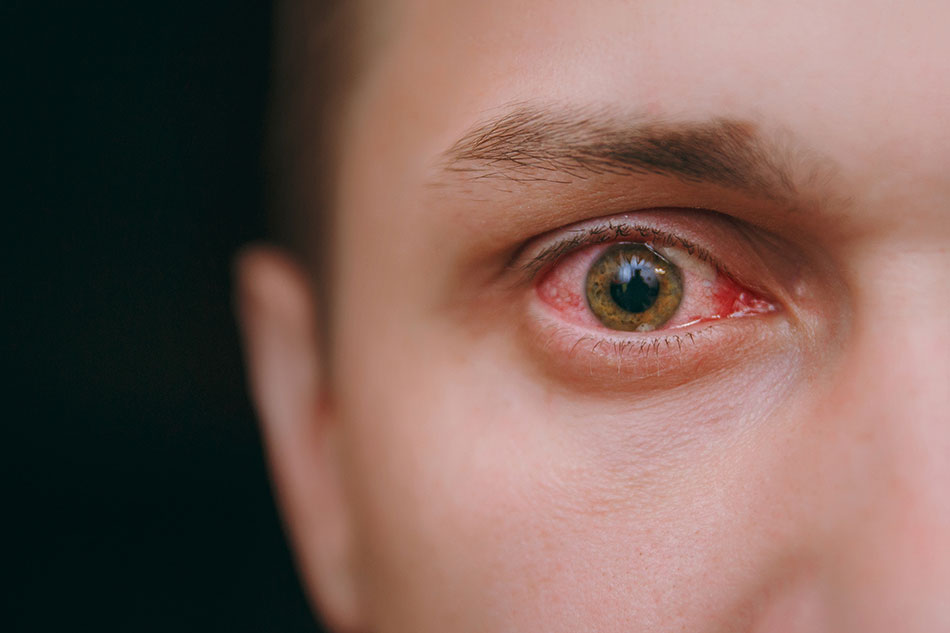Keeping your body hydrated is essential for your good health, but hydration is equally important for your eyes. Without adequate moisture, your eyes become dry and uncomfortable. Understanding how hydration problems occur can help you prevent dry eye, one of the most common types of eye problems.
What do tears do?
Tears do not just appear when you cry. They constantly bathe your eyes in moisture, wash away debris and help prevent bacteria from causing infections. Your tears actually consist of three layers: an outer oily layer, a middle watery layer and an inner layer that contains mucus. Because your tears help light enter your eye easily, blurred vision can occur if your eyes become dry. If the condition is severe, dry eyes may even cause ulcers on your cornea, the clear layer of your eye that covers your iris.
What happens if I have a hydration problem?
Poor hydration causes dry eyes, a common condition that affects most of us at some point in our lives. Dry eye can be temporary or chronic. If you have dry eye, you may notice:
- Burning, stinging or irritated eyes
- Blurred vision or vision that fluctuates
- A scratchy feeling in your eyes
- An increase in mucus
- Trouble wearing contact lenses
In some cases, dry eyes can cause your eyes to tear more. When your body senses that your eyes are not moist enough, it tries to remedy the problem by producing an abundance of tears. You may notice excess tearing when you are watching television, using the computer or reading.
Why do I have dry eye?
Dry eye can occur for a variety of reasons. As you age, you produce fewer tears, and the tears you do produce may not have the optimum balance of water, oil and mucus. Some diseases, such as Sjogren’s syndrome or arthritis, can decrease tear production, as can certain medications, including beta blockers, antidepressants, anxiety medications, pain relievers and antihistamines.
Wearing contact lenses can sometimes cause the problem, particularly if you wear them for longer periods then recommended. Using a computer for hours at a time increases your risk of dry eye because you may not blink as often when you are looking at a digital screen. Every time you blink, a wave of tears washes across your eyes.
Dry eye occurs more often in people who live in windy or dry climates and in women. Hormonal changes during pregnancy and menopause affect eye hydration, causing the uncomfortable symptoms of dry eye. The use of oral contraceptives can also trigger the problem. In some cases, the tear glands become blocked, preventing moisture from reaching your eyes. Eye inflammation is another potential cause of dry eye.
How do eye doctors treat dry eye?
If you have dry eye, your eye doctor may recommend that you use artificial tears to keep your eyes hydrated. Prescription eye drops that increase tear production may be needed if you don’t produce enough tears. Taking an omega-3 fatty acid supplement may help increase tear production naturally. Prescription eye drops can be helpful when dry is caused by an inflammation of your eyes or eyelids.
If these treatments do not help, your eye doctor may suggest blocking the tear ducts with small silicone plugs. When the ducts are blocked, the tears you do produce will remain on your eyes longer. In some cases, surgery may be recommended to permanently close the ducts.
Are you tired of living with dry eye? Call us and we will identify the cause of your problem and help you get those tears flowing again.
Follow these tips to keep your eyes moist and comfortable:
- Use artificial tears throughout the day if you are prone to dry eyes. Look for brands that contain no preservatives.
- Remember to blink when you use your computer, read or play video games. Take a break at least every hour to prevent dry eyes.
- Use a humidifier in your home during the fall and winter to keep the air moist.
- Stay away from cigarette smoke, which tends to dry out your eyes.
- Wear wraparound sunglasses to protect your eyes from the wind and reduce tear evaporation.
- Drink eight to 10 glasses of water every day to keep your entire body hydrated.
- Buy an air filtration system for your home to remove dust that can irritate and dry your eyes.
- Turn down the thermostat. Hot rooms can dry out your eyes.
Sources:
University of Michigan Kellogg Eye Center: Dry Eye Syndrome
http://www.kellogg.umich.edu/patientcare/conditions/dry.eye.html
American Optometric Association: Dry Eye
National Eye Institute: Facts About Dry Eye, 02/13
https://nei.nih.gov/health/dryeye/dryeye
Fighting Blindness: Dry Eye






